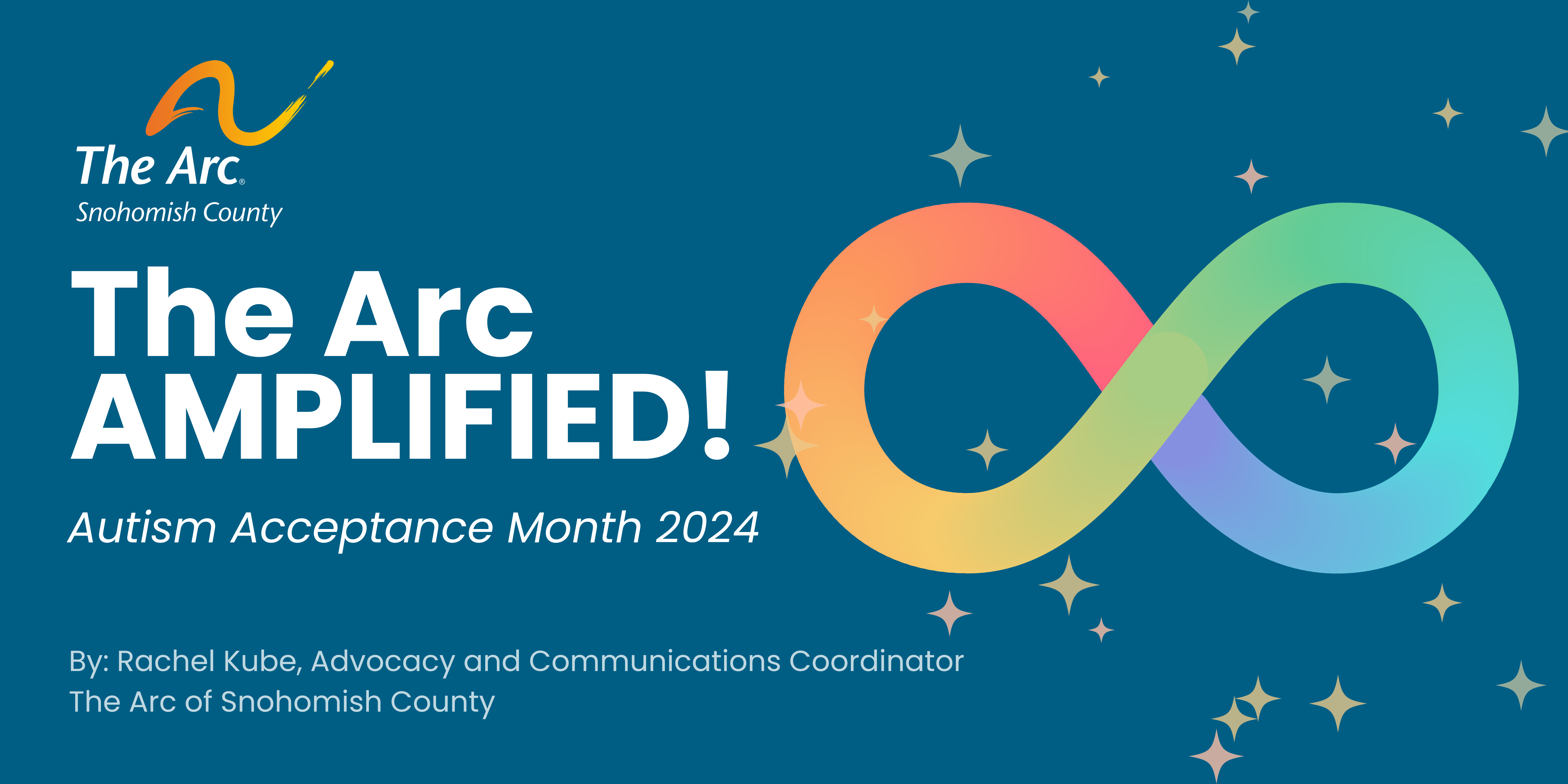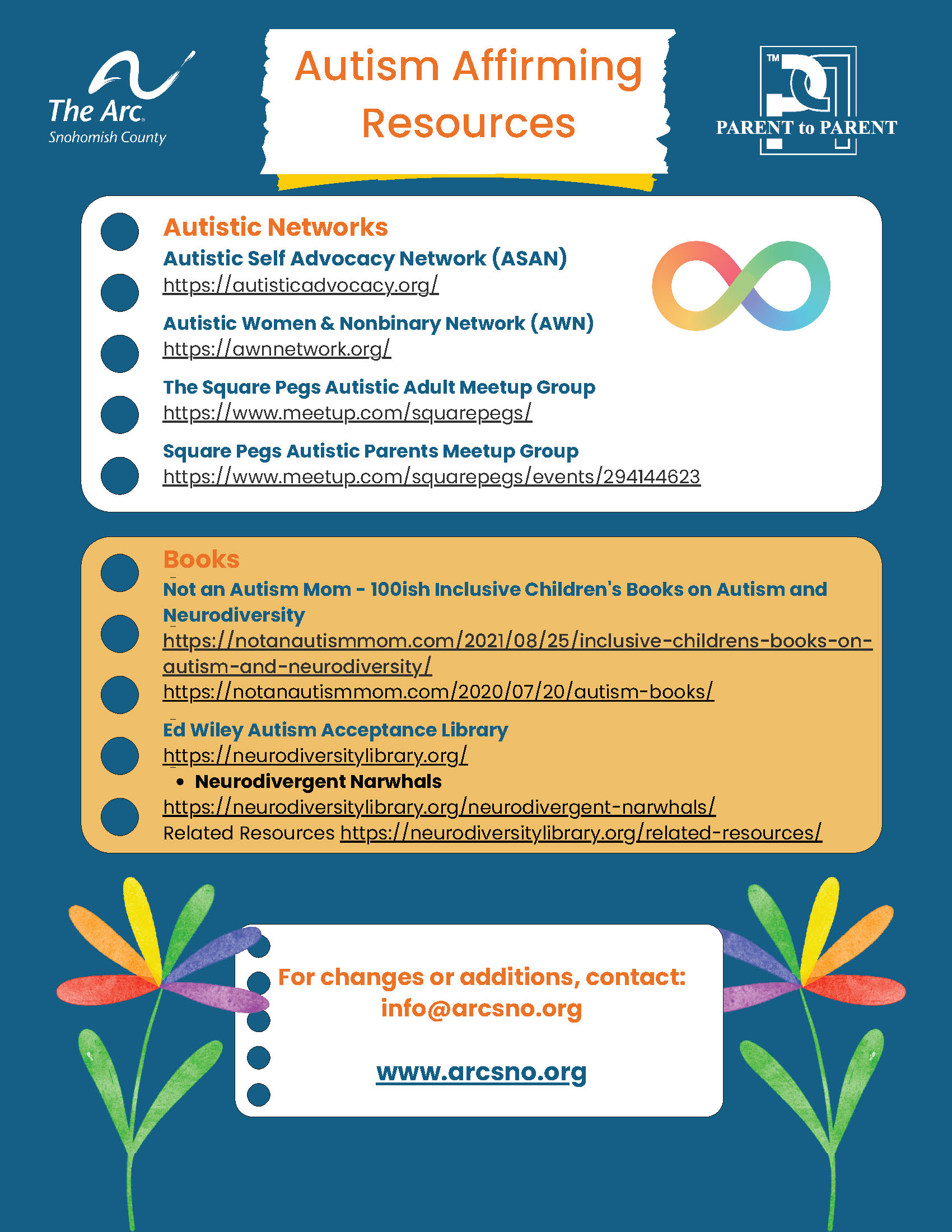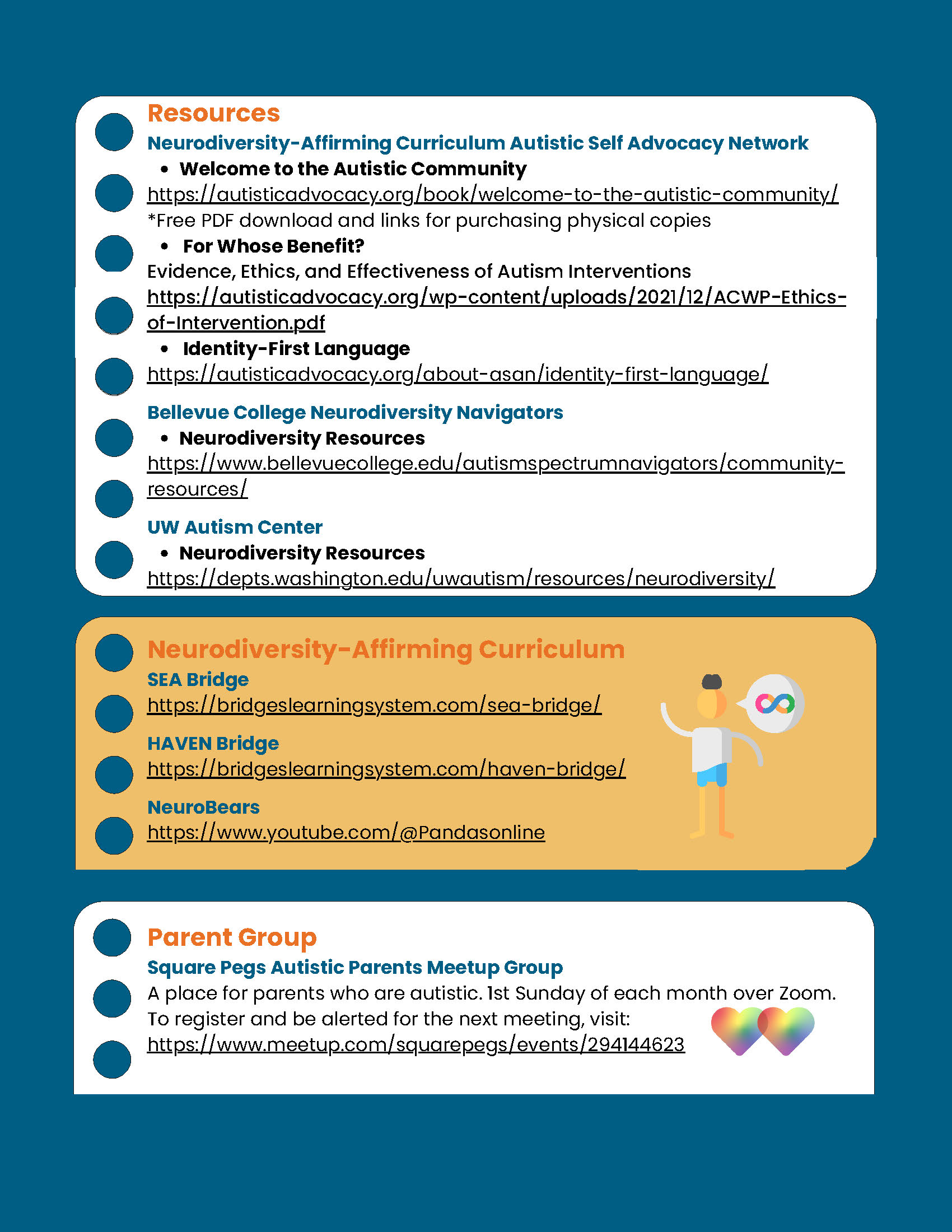
Autism Acceptance Month 2024
April is Autism Acceptance Month. In celebration of this month, The Arc of Snohomish County dedicates this Arc Amplified post to our autistic friends, family, and community members. We see and appreciate you.
It’s Autism Acceptance, Not Autism Awareness
There is an important distinction between the words “awareness” and “acceptance.” Where awareness shows observation, acceptance demonstrates the meaningful step from passive recognition to active inclusion. When we say Autism Acceptance Month instead of Autism Awareness Month, we call attention to this distinction.
Autism Acceptance Month is about celebrating autistic neurodiversity, valuing the strengths and contributions of autistic people, and prioritizing accessibility and inclusion.
Autism 101
Autism, also known as Autism Spectrum Disorder (ASD), is a developmental disability that an individual is born with. Though autism is often diagnosed in childhood, it can be diagnosed across the lifespan. Not every autistic person will seek out official testing and diagnosis; this does not negate autistic identity. Neurodiversity and neurodivergence are umbrella terms that encompass autism, Attention Deficit Hyperactivity Disorder (ADHD), and other neurodevelopmental disabilities.
Autism impacts the way an individual experiences, processes, and navigates the world around them. Current ASD diagnostic criteria looks at differences in social-emotional reciprocity, social communication, sensory processing, and repetitive patterns of behavior. Autism exists on a spectrum; individual traits, qualities, talents, and support needs differ from one autistic person to another. There is infinite diversity to the autistic experience.
No, Autism Does Not Need a “Cure”
“Disability is a natural part of the human experience and in no way diminishes the right of individuals to participate in or contribute to society.”
– Individuals with Disabilities Education Act (IDEA), Section 1400 (c) (1)
Like other naturally occurring developmental disabilities, autism is lifelong and neither has nor needs a “cure.” Autistic people will always be autistic. Conversations about autism sometimes include rhetoric about finding a “cure.” Whether seeking to train away the outward display of autistic traits or develop a “cure,” approaching autism as a problem to be solved has harmful repercussions.
Instead, shift focus to the supports, resources, and accessibility tools that empower autistic people to thrive in the lives of their choosing.
Allyship in Action This Autism Acceptance Month and Beyond
- Believe autistic people when they tell you about their experiences and autistic identity
- Value the perspectives, autonomy, rights, and dignity of autistic people
- Recognize that autistic people are the experts on their own lives and access needs
- Use respectful language about autism. Many autistic people use Identity First Language (“autistic person” instead of “person with autism”)
- Support autistic creators: read books, articles, and blog posts by autistic writers; watch films and videos by autistic actors, comedians, and content creators
- Listen to and learn from autistic people
- Talk about autism acceptance in your community
- Challenge harmful societal beliefs about autism and autistic people
- Prioritize accessibility: make places, spaces, and communication accessible, sensory-friendly, and responsive to support needs
- In the spirit of the disability rights slogan “nothing about us without us,” center and include autistic people in conversations about autism, accessibility, and supports
- Celebrate and show your love for the autistic people in your life!
Autism Affirming Resources
For more information about autism acceptance networks, books, resources, curriculum and more, check out The Arc of Snohomish County’s Autism Affirming Resources



